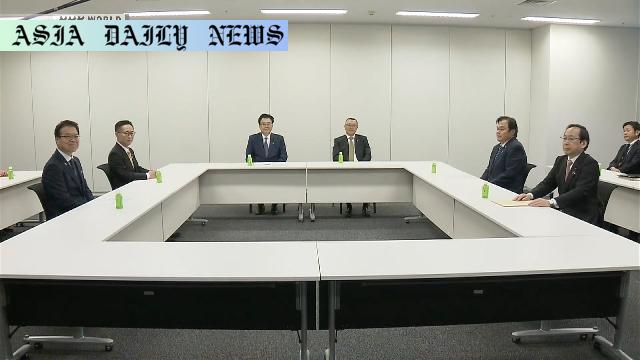Income Tax Reform: Japan’s LDP proposes raising the tax-free threshold to benefit low-income earners, but faces pushback from Komeito and DPFP.

Introduction to Japan’s Proposed Income Tax Reform
The Liberal Democratic Party (LDP), Japan’s ruling party, has proposed a new income tax reform plan aimed at revising the minimum taxable income thresholds. This move is designed to provide financial relief to low-income earners and stimulate economic growth. However, the reform has sparked a heated debate due to opposition from its own coalition partner, Komeito, and the opposition Democratic Party for the People (DPFP). The parties have collectively acknowledged the need for reforms but disagree on the specifics of the thresholds and the overall impact these changes may have on various demographics.
Details of the LDP’s Proposal
The proposed reforms by the LDP outline a significant increase in the minimum annual income subject to taxation. For individuals earning 2 million yen or less annually, the threshold would rise to 1.6 million yen (approximately $10,500). For those earning between 2 million and 5 million yen, the proposed tax-free threshold would be 1.33 million yen (approximately $8,800) for a temporary period of two years. For individuals with annual incomes exceeding 5 million yen, the minimum taxable income threshold would rise marginally to 1.23 million yen (approximately $8,100). The plan is particularly focused on reducing the tax burden for low-income earners while maintaining a more measured approach for middle- and high-income groups.
Opposition to the Proposal
Despite its ambitious goals, the LDP’s plan has received substantial criticism from its political partners. Komeito and the opposition party DPFP argue that the proposed changes do not sufficiently address the concerns of middle-income citizens. The DPFP has proposed a more substantial increase in the threshold to 1.78 million yen (approximately $11,700), emphasizing that the middle class requires greater financial relief amidst economic challenges. This disagreement highlights the difficulty in balancing fiscal policy with the disparate needs of various population groups.
Impact on Low-Income Earners
The centerpiece of the LDP’s proposal is the focus on improving financial conditions for low-income earners. By raising the non-taxable threshold to 1.6 million yen for those earning up to 2 million yen annually, the reform would potentially provide immediate relief to Japan’s lower-income segment. This move aims to boost disposable income and foster economic activity among those with limited financial resources. In doing so, the LDP hopes to address income inequality and encourage more equitable economic participation.
Concerns from Middle-Income Earners
One of the significant criticisms of the proposal revolves around its limited benefits for middle-income earners. The current plan provides only a modest increase in the non-taxable threshold for individuals earning between 2 million and 5 million yen annually. Critics argue that this approach may lead to feelings of neglect among middle-income households, who often bear a heavy tax burden without receiving the same degree of financial assistance as low-income groups. As a result, the opposition has demanded broader and more inclusive reforms to address the concerns of the majority of Japan’s workforce.
Future Discussions
The debate over income tax reform remains unresolved, with further discussions scheduled amongst the three parties. As they continue to negotiate, the primary objective will be to find common ground that satisfies the competing demands for fairness, economic relief, and fiscal responsibility. Japan’s economic future may hinge on the successful implementation of a reform strategy that strikes the right balance between promoting economic growth and addressing social equity.
Conclusion
The LDP’s income tax reform proposal has ignited a critical conversation about economic fairness and growth in Japan. While the proposal provides significant relief for low-income earners, it falls short of addressing the broader concerns of middle-income households. As discussions progress, it is essential for policymakers to prioritize inclusivity and fairness, ensuring that the reform does not disproportionately benefit one group over another. The final policy decisions will likely play a pivotal role in shaping Japan’s socio-economic landscape in the years to come.
Commentary
The Importance of Inclusive Tax Reform
The debate surrounding Japan’s proposed income tax reforms underscores the critical need for comprehensive and inclusive policymaking. While the Liberal Democratic Party’s (LDP) proposal seeks to provide targeted relief to low-income earners, its approach has drawn skepticism from both its coalition partner, Komeito, and the opposition Democratic Party for the People (DPFP). It is clear that any effective tax reform must consider the unique challenges faced by all segments of society, especially the often-overlooked middle-income class.
Balancing Economic Relief and Social Fairness
The LDP’s focus on raising the tax-free income threshold for low-income earners is commendable, as it addresses a pressing need for financial relief among those most vulnerable. However, the criticism from opponents is not without merit—middle-income earners are an essential part of the economy and often carry a disproportionately large tax burden. Ignoring their needs could exacerbate economic inequalities and create a sense of disillusionment among the majority of taxpayers.
A Call for Pragmatic Negotiations
As discussions among the three parties continue, a pragmatic approach is vital to achieving a balanced outcome. Policymakers must work collaboratively, setting aside partisan interests to create a tax framework that benefits all citizens. This means considering higher thresholds for middle-income households while ensuring fiscal sustainability. Ultimately, an inclusive policy that resonates with public sentiment will be crucial for maintaining economic stability and fostering social cohesion.
Final Thoughts
Japan stands at a crossroads as it navigates these important income tax reforms. The decisions made in the coming days will not only impact individuals’ livelihoods but also shape the nation’s socio-economic trajectory for years to come. It is imperative for the government to rise above political differences and enact reforms that truly reflect the needs of the people, ensuring a fair and prosperous future for all.


